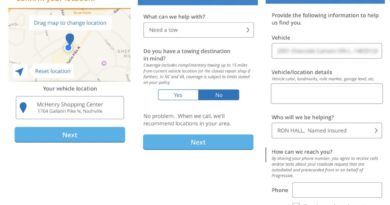Work Life Support

Author’s note: I have quite a few friends who own businesses and their employees are remote, they subcontract out, or worse – they are on-site but in a ‘tower’ isolated from their workers. Many of us in this situation, myself included, have forgotten what work life really is – a part of one’s overall life. I think once we are reminded what workers really experience – we can get in a better position to enhance our own worker’s experiences.
Being a self-employed consultant, running your own company, or being owner of a small business with employees can leave you with memory loss of what it was like to be an employee. Often when we manage employees, we come at it from a task orientation i.e productivity (speed, keeping up), supply chain challenges, and teamwork issues – while missing some key components of being an employee: morale, social support, emotional support, and community. Absent of those acknowledgments, we wonder why employee retention is an issue.
Social support at work is the extent to which employees recognize that superiors care about their general welfare at work through the provision of social resources corresponding to employees’ tasks or goals (Kossek et al., 2011). Carlson & Perrewe (1999) identified two types of social support; work-related social support and non- work social support. Work-related social support refers to the willingness of organization members to provide support within the workplace. Non-work social support is the display of concern and willingness to assist an employee in non-work-related matters. This may be demonstrated by supervisory assistance to resolving work-family conflicts. An effective means of categorizing social support is through its source. Support may be provided by people within an organization for example, supervisors, subordinates, co-workers, even customers and the organization in general. These sources are often tagged in literature as perceived co-worker support, perceived supervisor support and perceived organizational support (Rahnfeld et al., 2013). Other informal sources of support include spouses, family relations, friends or close associates, and other affiliates.
Ojo, 2020. Work-Life Balance: The Relevance of Social Support. Covenant University.
Employee retention can be an issue because put simply, we tend to forget what employee life actually is because in many cases we have not been an employee for a very long time or may have never been one. It is important to employ some mechanisms that make the workplace something that has not been seen in a long time – a solid part of one’s overall life.
Being an employee means your work life is part of your overall life which can include your social life, home life, school life, family life, and yes work life. We often hear the phrase ‘work life’ when referred to in the phrase ‘work-life’ balance but in reality, one’s ‘work life’ is a part of the sum of the whole ‘life’.
‘Work Life’ went away for many who stayed at home during the pandemic but for businesses that stayed open, ‘work life’ continued. ‘Work Life’ matters to employees. Work can be a place where they find a sense of usefulness and morale boosting purpose. It can also be a place where they find support when a loved one dies, or community during life changes such as childbirth, marriage, or adoption. What’s important is that business owners who stand apart from their employees or self employed workers who work on their own do not lose sight of the importance of work life to others. How do we do that?
How do we not lose sight of work life to others? We do so by a variety of means. One means is simply listening to employees. Everyone wants to be heard and not every conversation will be work related but every conversation is employee-related and part of work life. Another means is celebrating employee milestones such as the afore mentioned childbirth, birthdays, marriage or adoption – doing so communicates that work life matters to you. There are some other factors not part of the thesis of this particular blog but worth citing.
Research on the topic is clear: having friends in the workplace can not only boost job satisfaction and performance, but also improve wellness. It’s linked to a lower risk of burnout, better mental health, fewer traumatic experiences, and maybe even a longer lifespan, according to studies conducted by researchers in Spain, Japan, Germany, Iceland, and Israel, among others.
Ducharme, 2023 “Why Work Friends Are Crucial for Your Health” Time Magazine
Some factors that are not part of this blog but worth citing are ones we have to be cognizant of group dynamics at work – friendships, alliances, after work cliques, in-office politics, and activities that may be interfering with work such as multi-level marketing pitches, kids fundraiser order forms, or manipulative employees. In the end, though we may not experience ‘work life’ ourselves, we do have a responsibility to be cognizant of it. We may have some memory loss when it comes to those experiences.
Understanding ‘work life’ is the beginning of combatting the memory loss you may have of being a business owner, self-employed or otherwise amnesia prone of this dimension of existence. ‘Work life’ is part of an employee’s entire life – work, home, social and family. Once we recognize that, remember that, and put mechanisms in place that acknowledge that, the chief of which may be communication, we will begin to be the work place we have not seen in a long time.
Works Cited
Akinrole Olumuyiwa Oludayo, D. O. O. (2020, June 25). Work-life balance: The relevance of Social Support. Academy of Strategic Management Journal. https://www.abacademies.org/articles/worklife-balance-the-relevance-of-social-support-9315.html
Ducharme, J. (2023, April 26). Work friends are crucial for your health. here’s why. Time. https://time.com/6274502/work-friends-health-benefits/




